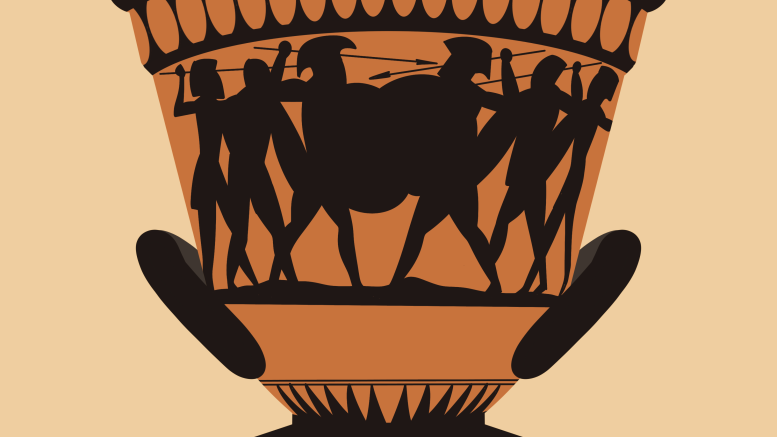This past Sunday, classicist Emily Greenwood presented a guest lecture on campus about ancient Greek and Indigenous histories. The event was part of the “Hellenic Civilization Lecture” series hosted by the department of classics. The series explores Hellenic history and culture not only in the ancient world, but across space and time.
Greenwood was born in the Cayman Islands to a Black Ugandan mother and a white British father. She first encountered classics as a child in Malawi, a newly postcolonial state in East Africa. After earning degrees in classics at the University of Cambridge, she is currently a professor at Harvard University where she examines ancient Greek and Roman history through modern, postcolonial and Black perspectives.
When prompted about the implications of using the term “classics” to study ancient Greece and Rome, Greenwood stressed the importance of critically examining the discipline.
“We can’t pretend that Greece and Rome — these two civilizations which are very heterogeneous civilizations — have a monopoly on the entirety of antiquity,” she said.
“[The adjective ‘classical’] comes from a Latin noun, which goes back to Roman property classes. So when it first gets used as a Roman adjective that is applied metaphorically, it means first class or top rank. So it’s already quite an exclusive claim. It’s already being used to sort of sift out and stratify a class system, and then it gets applied to peoples and civilizations.”
Greenwood’s upbringing also shaped her views on the discipline.
“The president, who was the first leader of Malawi after independence from the British, a man called Hastings Kamuzu Banda […] In 1981, he inaugurated this school named after himself, Kamuzu Academy, which he made all the students do Greek and Latin, and he only recruited white European teachers to teach at the school of whom my father was one,” Greenwood said.
“I didn’t attend that school, but I grew up as a child on this campus, so that for me, immediately cast classics in these imperial or colonial terms.” Greenwood’s lecture titled “Re-reading Thucydides’ History of the Peloponnesian War in light of Indigenous Histories,” explored connections between the writings of Thucydides, a fifth-century BCE Athenian historian, and early modern Indigenous figures like Tecumseh. Tecumseh was a Shawnee leader who resisted colonial expansion in the late 18th and early 19th centuries.
“I’ve been working on the Shawnee leader and warrior Tecumseh, who I think is most famous in Canada because he was fighting with the Canadians and British in the War of 1812 and died in 1813 in that war. And it became apparent to me, looking at the anthologies of Native American speeches in the U.S., that there’s one famous speech of Tecumseh where the people doing the recording and transmission have not recorded Tecumseh’s words, but instead interpolated some speeches from book one of Thucydides,” Greenwood explained.
“So, you know, this troubled me as a classicist, and I thought, what role is classics playing, not only in the transmission of modern empires, but it’s even contributing to epistemicide [the silencing or devaluing of a knowledge system], to helping to extinguish records of Native American thought and rhetoric,” she added.
“I wanted to use this paradox of Thucydides being interpolated into council speeches to sort of actually say, well isn’t it now time to think back and think about how we might read Thucydides differently and ask about Indigenous histories?”
Greenwood highlighted the importance of conversations like these, as well as efforts toward reconciliation with First Nations at the university.
“It’s exciting, very exciting for me, a huge privilege to come to the University of Manitoba, because I know that there are very fraught histories and ongoing dialogues with First Nations and Indigenous territories. But there are important initiatives at the University of Manitoba, press [and] scholars […] who are sort of helping to push forward these questions.”
Greenwood’s lecture was held in St. John’s College on Jan. 19. Visit umanitoba.ca/arts/classics for future events hosted by the department.



